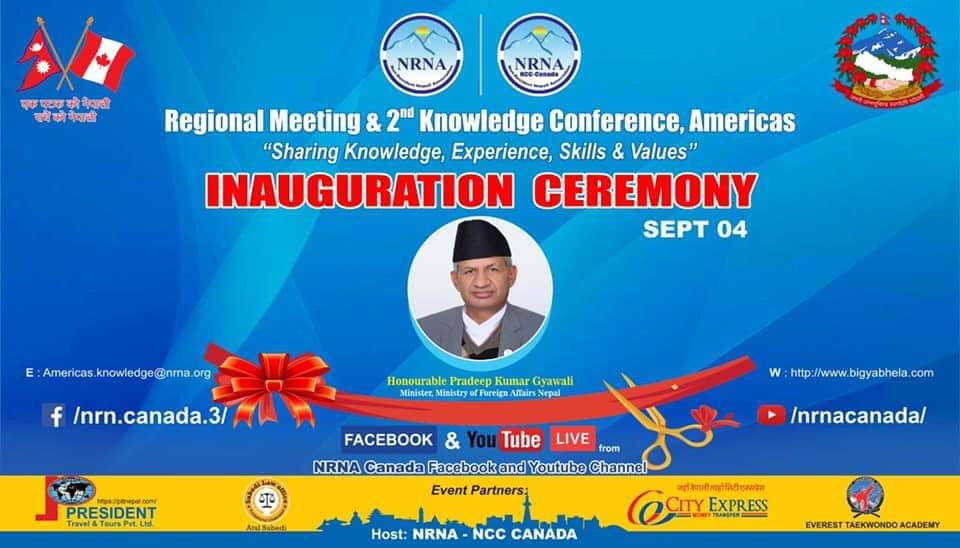2020-09-05 - 2020-09-06

Call for Abstract Submission
"Sharing Knowledge, Experience, Skills, and Values to help improve Science &
Technology, Entrepreneurship, Policy, and Practice in Nepal"
Date: Saturday & Sunday, September 5th-6th, 2020
Location: Zoom
Abstracts Due August 20, 2020
Please send your abstract to the Session Chair (See below)
The NRNA-ICC invites scholars, professionals, institutions, industry practitioners, entrepreneurs, and problem-solvers to share their new ideas, research, experience, original research results or outcomes, lessons learned, and practical development experience at the NRNA-ICC 2nd knowledge sharing conference. Presenters will also have an opportunity to network with experts, share skills, and discuss potential opportunities.
Eligibility
Abstract submission is open to all, including Nepali Diaspora scientists, students, and researchers from several areas of interest mentioned below. The theme of the submitted abstracts needs to focus on the groundbreaking ideas, strategies, and relevant policies that can potentially contribute to developmental plans and their implications in the context of both Nepal and the Americas.
Taking this into account, we invite all interested scholars to submit an abstract (maximum of 500 words) on subjects of broad interests that include:
Abstracts are due on August 20, 2020, at 11:59 pm (EST, Toronto Canada). Accepted abstracts will be notified by August 25, 2020.
Please send your abstract as an attachment to respective session chairs (see above). Should you wish, you may contact and consult with the respective chair prior to submitting abstract.
Abstract Format:
Background
Sharing knowledge and experience more effectively can help solve complex problems. In theseuncertain economic times, the exchange of knowledge, skills, and expertise (practicality) could be a useful basis of collaboration to solve complex problems. However, such a partnership requires close interactions and relationships between experts, problem solvers, and society. Diasporas and organizations like NRNA-ICC can play an essential role in facilitating and strengthening such interactions and networks. By bringing expert communities closer together, they can also help bridge the knowledge and skill gaps and pave the way for future collaborations.
Objective:
The NRNA-ICC's second knowledge-sharing conference's goal is to bring together a great diversity of people and key stakeholders from the Americas and Nepal and exchange knowledge,experience, skills, and opportunities to strengthen the science and technology, human resources, entrepreneurship, policies, and practices in both regions. It also aims to build meaningful relationships between scholars, professionals, institutions, industry practitioners, entrepreneurs, problem-solvers, and the for-profit and not-for-profit sectors in Nepal and the Americas, and pave the way for future collaborations to solve some of our most challenging problems in Science and Technology, Health and Medicine, Education, Economy, and Equitable Development (including gender-equitable development), Engineering, Infrastructure Development, Public Safety, and Energy, and the Environment.